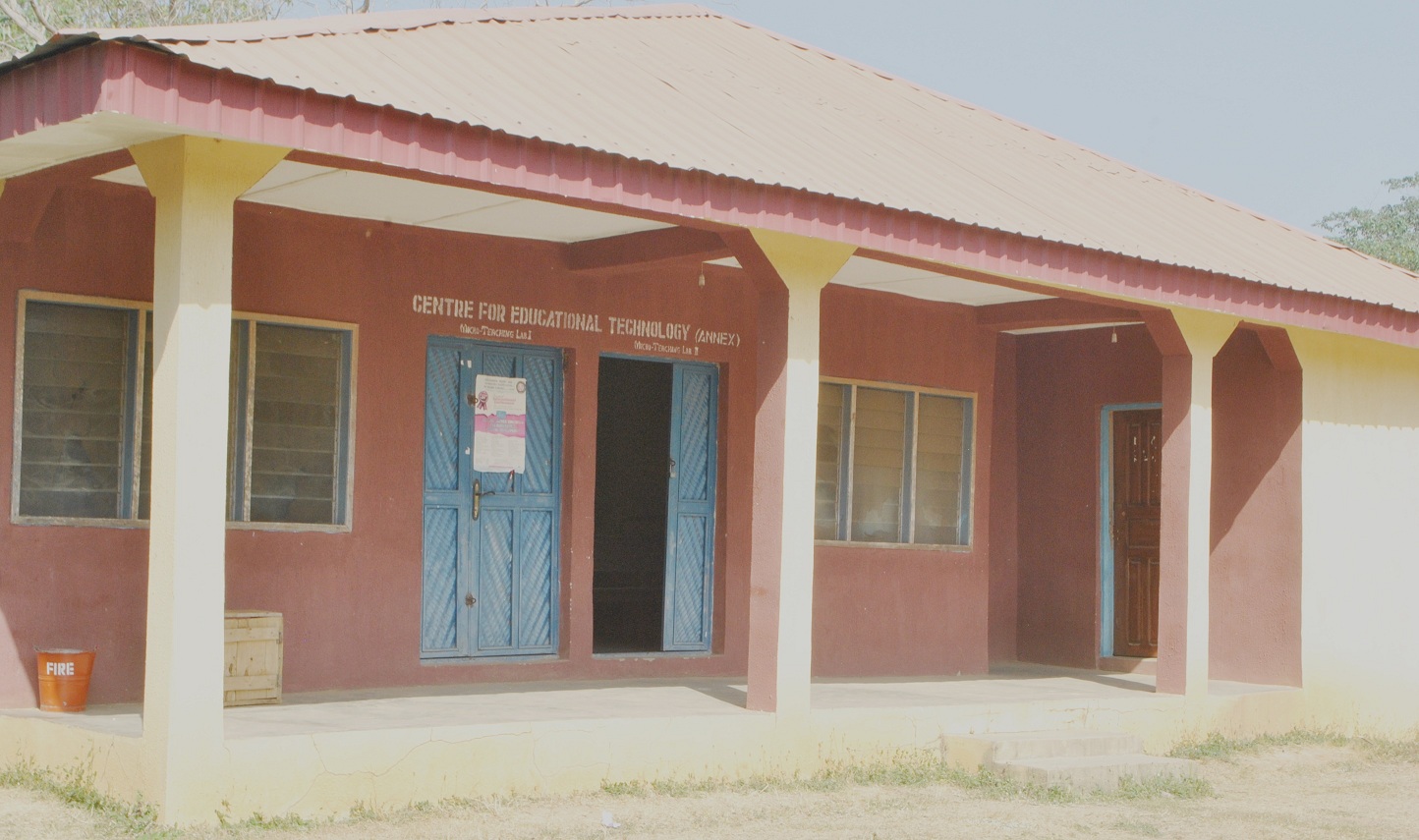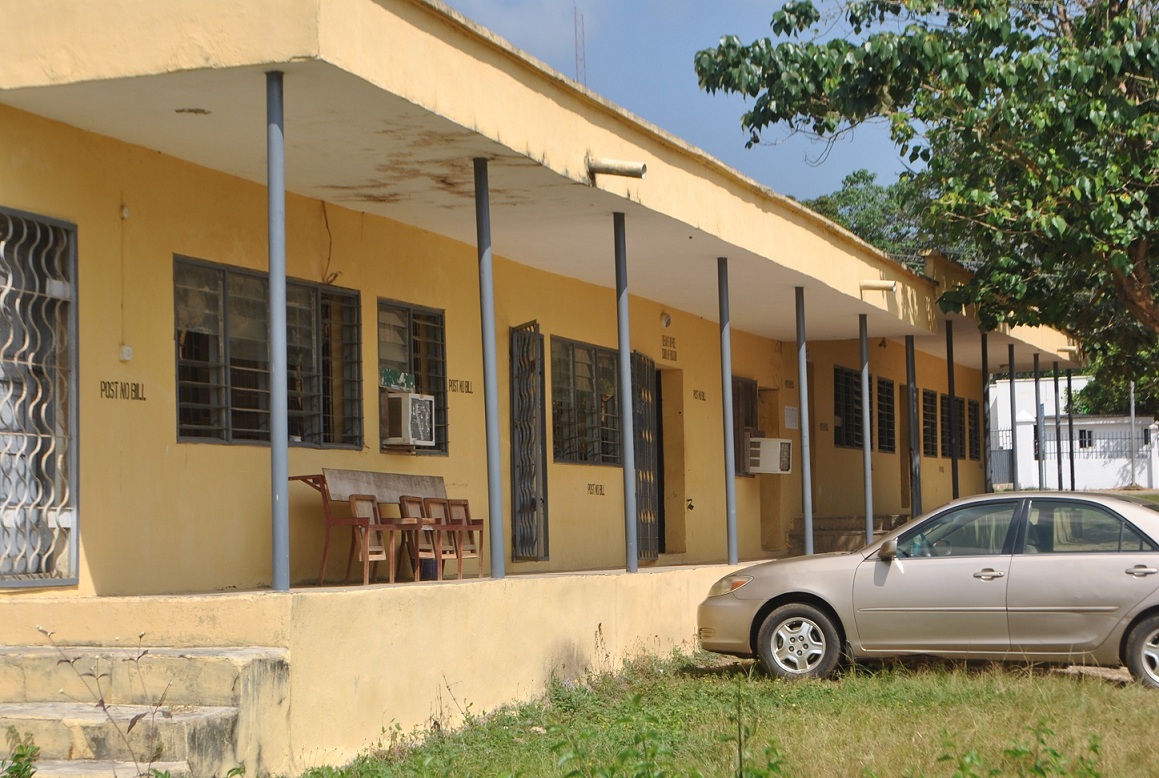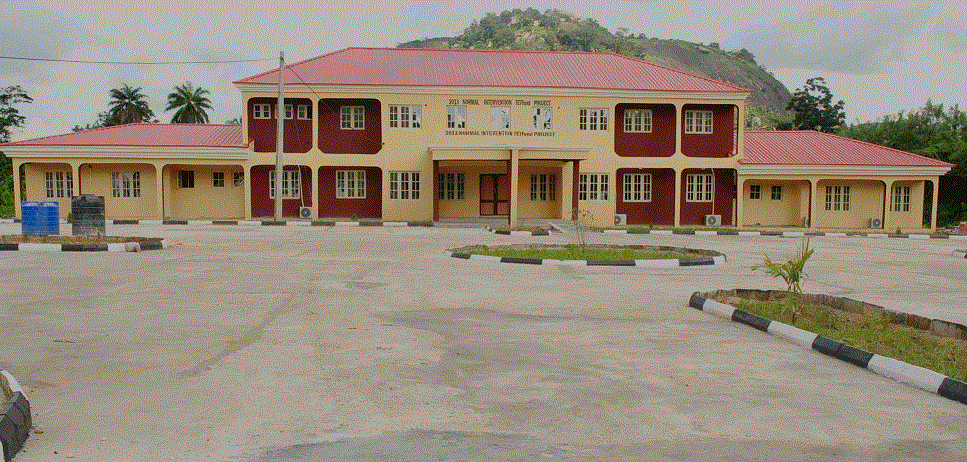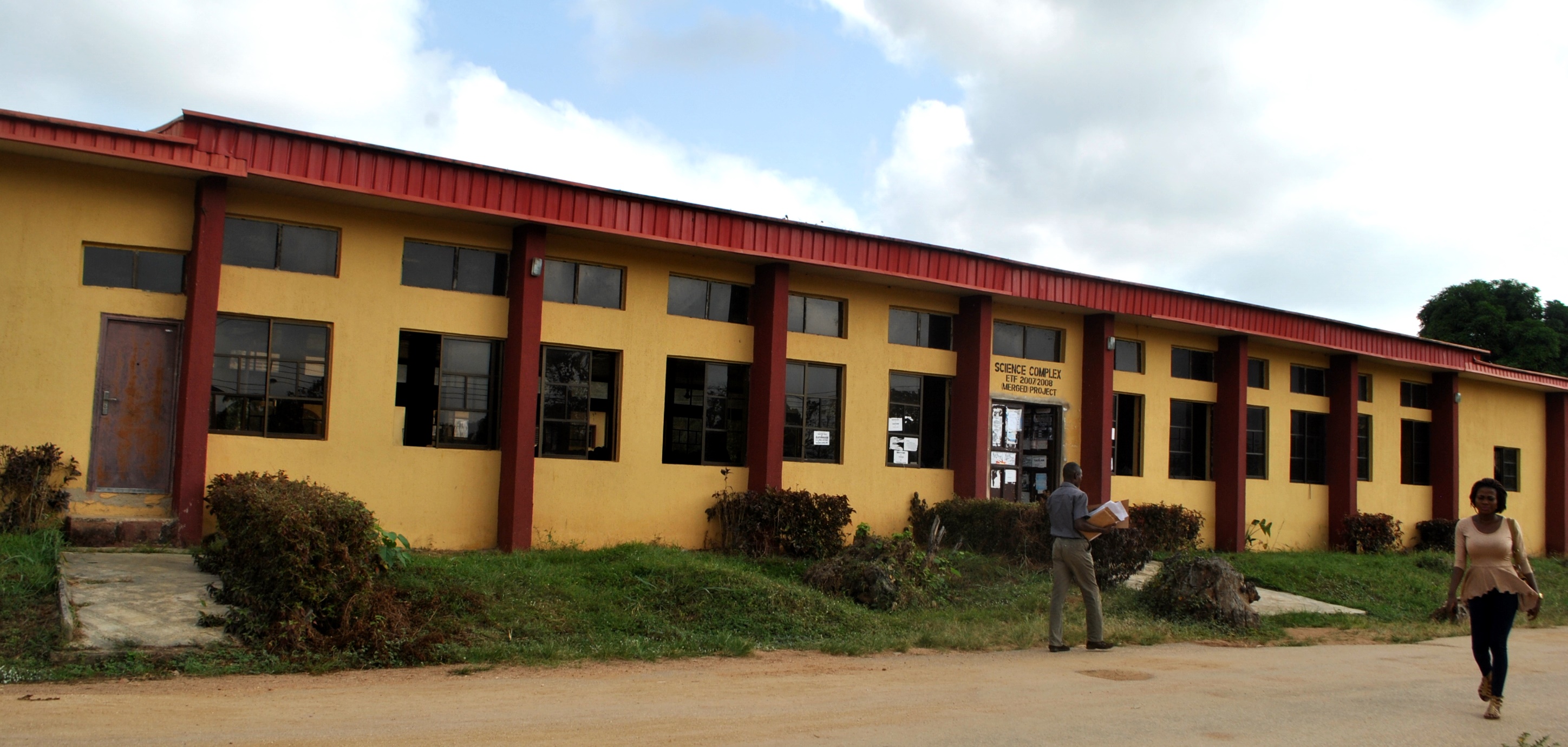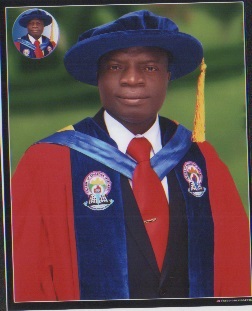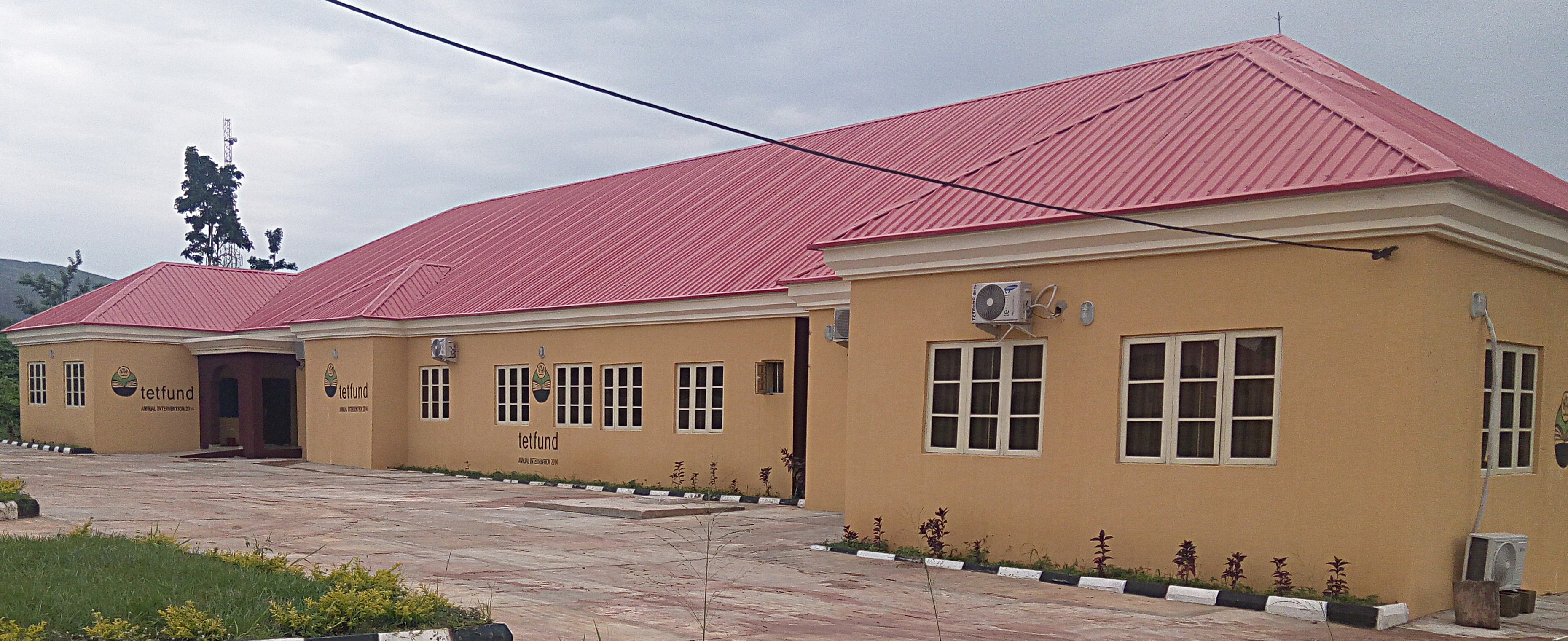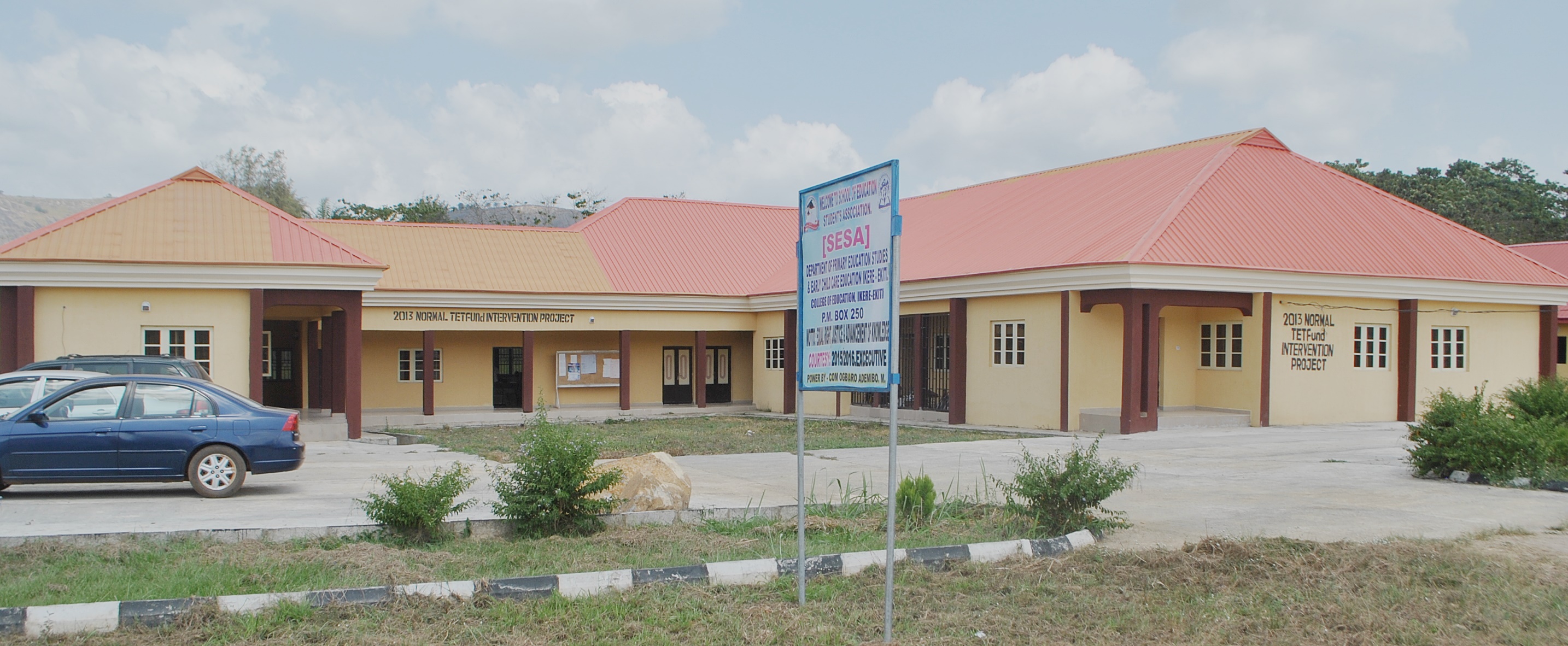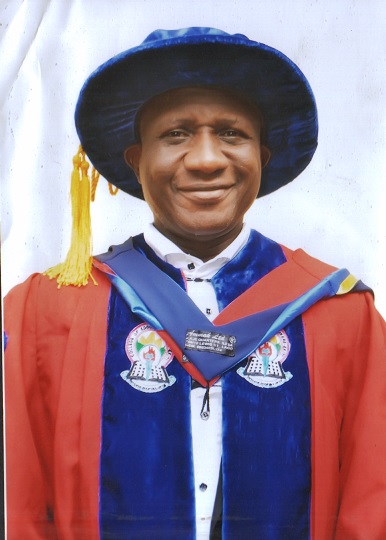NUMBER OF EXISTING FACULTIES/DEPARTMENTS
This is a three year full-time programme, with as many as ninety-six (96) subject combinations, covering
broad areas of the Sciences, Arts, Languages, Social Sciences, Vocational and Technical courses in addition
to Education.
Based on the inter-relationship of disciplines in the NCE programme and in line with the directive of the
National Commission for Colleges of Education (NCCE) the subjects are restructured into five Schools of
Study with about ninety-six (96) subject combinations. Each School of Study is headed by a Dean.
HISTORY OF THE SCHOOL OF EDUCATION
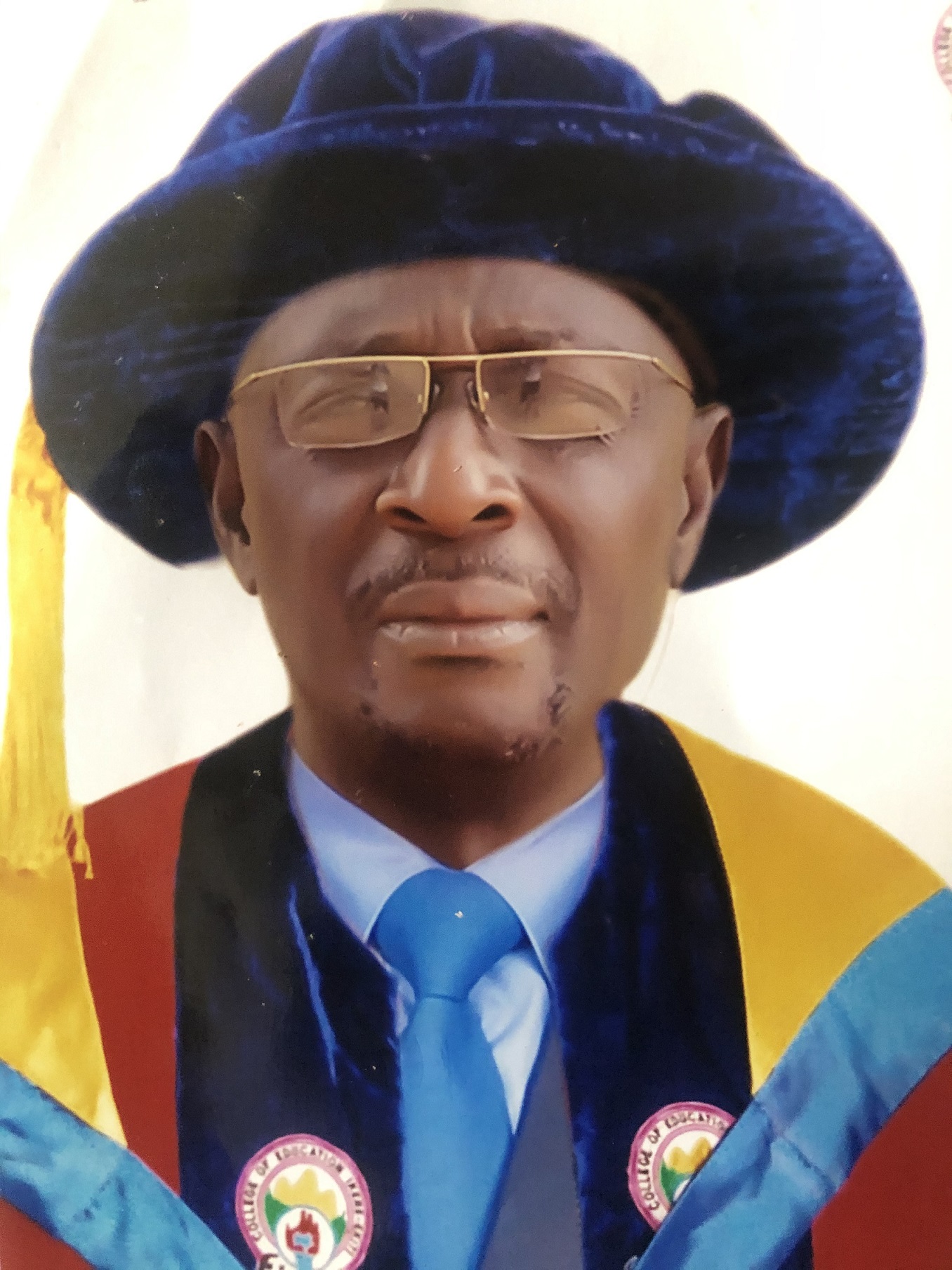 School of Education came into existence in 1980. It was Dr. Oguntonade, the then Principal who restructured
the existing Academic Division into five schools of study, based on the
inter-relationship of discipline.
School of Education came into existence in 1980. It was Dr. Oguntonade, the then Principal who restructured
the existing Academic Division into five schools of study, based on the
inter-relationship of discipline.
The School is headed by the Dean. In all, the school has produced fourteen Deans
since 1981 till date. The seat of Dean in the School of Education is presently
occupied by Dr. E.K Ekuiugbo
The school consists of seven Academic Departments.
Duties of the Directorate
- Educational Foundation.
- Educational Psychology.
- Primary Education Studies.
- Educational Technology.
- Curriculum Technology.
- General Studies.
- Early Childhood and Care Education.
Mission of the School of Education
The Mission of the School of Education is to research for the purpose of producing well qualified NCE graduates who are morally, intellectually and socially sound for global human development.
Vision of the School of Education
The vision of the School of Education is to be first Department in producing highly skilled and trained NCE graduates in Education.
Academic Staff ListBRIEF HISTORY OF THE SCHOOL OF ARTS & SOCIAL SCIENCES
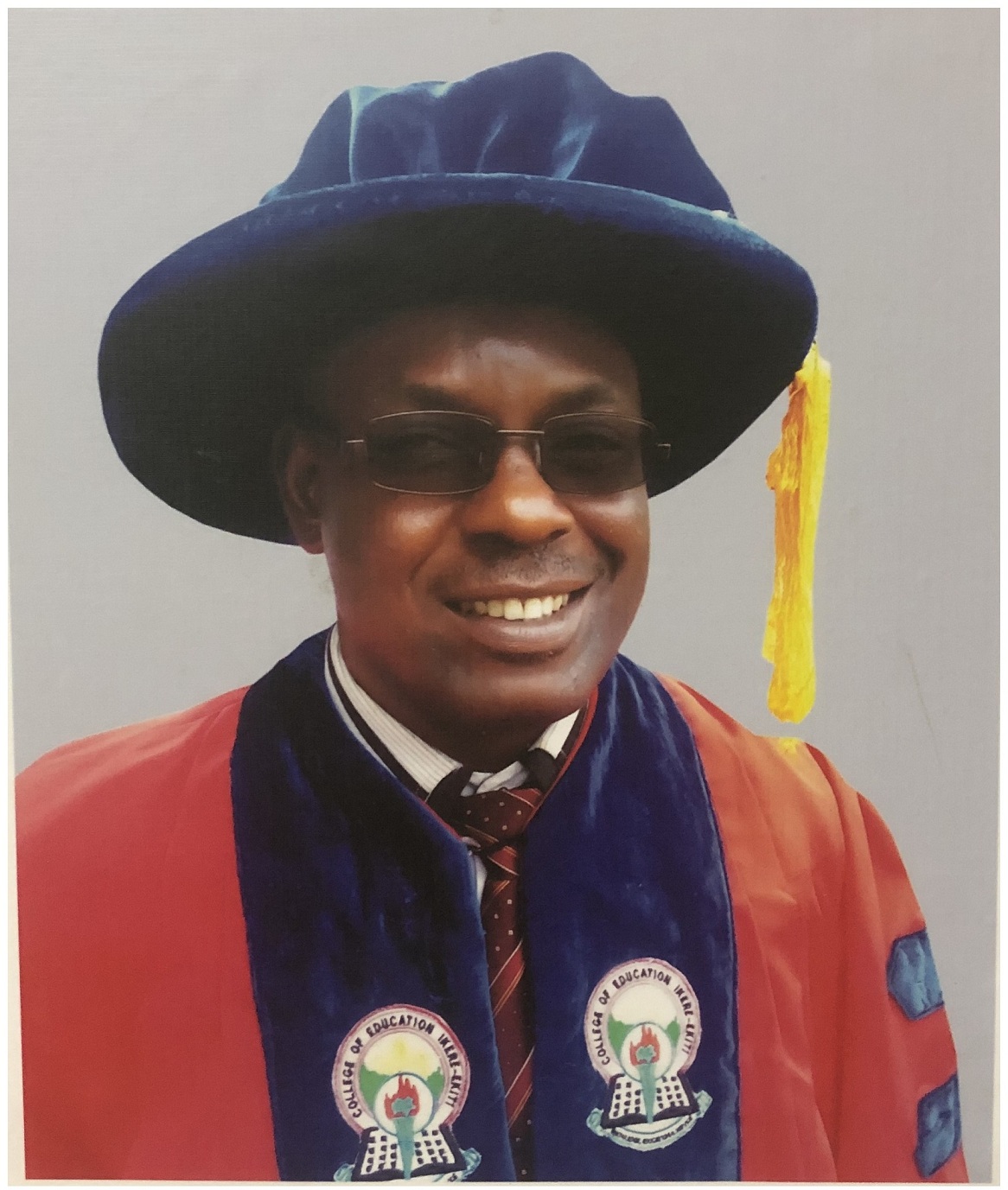 Following
the establishment of the College of Education, Ikere Ekiti on December 5, 1977,
due to the inter-relationship of disciplines in the NCE programme and in line with the
directive of the National Commission for Colleges of Education (NCCE), five schools of Study were created of which
the School of Arts & Social Sciences was one, the School of Study is headed by Dr. A.O Aladedokun
Following
the establishment of the College of Education, Ikere Ekiti on December 5, 1977,
due to the inter-relationship of disciplines in the NCE programme and in line with the
directive of the National Commission for Colleges of Education (NCCE), five schools of Study were created of which
the School of Arts & Social Sciences was one, the School of Study is headed by Dr. A.O Aladedokun
MISSION/VISION OF THE SCHOOL OF ARTS & SOCIAL SCIENCES
The following are the mission/vision of the School of Arts &
Social Sciences.
- to produce NCE teachers of Arts & Social Sciences subjects who are capable of
contributing meaningful to the
production of teachers of those subjects for the Basic Education in Nigeria;
- to help the students acquire the basic knowledge and values needed to enhance
the quality of their lives and
the life of the nation;
- to help the students acquire the spirit of self-reliance, positive self image
and balanced personality.
The Departments into the School of Arts & Social Sciences
Based on the inter-relationship of disciplines in the NCE programme and in line with
the directive of the
National Commission for Colleges of Education (NCCE), five schools of Study were
created of which the School of
Arts & Social Sciences was one.
DEPARTMENTS IN THE SCHOOL OF STUDY
There are nine departments in the School of Study which include;
- Christian Religious Studies
- Economics
- Geography
- History
- Islamic/Religious Studies
- Music
- Political Science
- Social Studies
- Theatre Arts
DEPARTMENTS / COMBINATION(S)
History
- HISTORY/IGBO
- HISTORY/ISS
- HISTORY/POL. SC.
- HISTORY/SOS
- HISTORY/YORUBA
- HISTORY/THEA. ARTS
Music
- MUSIC DOUBLE MAJOR
CRS
- CRS/ENGLISH
- CRS/FRENCH
- CRS/POL. SC.
- CRS/HISTORY
- CRS/HAUSA
- CRS/IGBO
- CRS/SOS
- CRS/YORUBA
- CRS/THEA. ARTS
Islamic Religious Studies
- ISS/YORUBA
- ISS/SOS
- ISS/POL. SC
Theatre Arts
- THEA. ARTS/YORUBA
- THEA. ARTS/ARABIC
- THEA. ARTS/MUSIC
- THEA. ARTS/FRENCH
- THEA. ARTS/IGBO
Social Studies
-
SOS/YORUBA
Economics
- ECO/GEOG
- ECO/POL. SC.
- ECO/MATHS
- ECO/SOS
Geography
- GEOG/ISC
- GEOG/MATHS
- GEOG/SOS
- GEOG/HISTORY
- GEOG/POL. SC.
Political Science
- POL. SC/SOS.
- POL. SC/YOR
SCHOOL OF SCIENCES
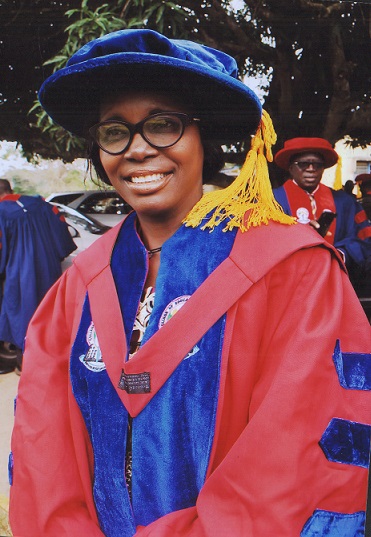 What
is now known as the School of Science started in 1977 as a division of Science of an
Advanced Teachers' College.
The division comprised of the department of Biology, Chemistry, Physics and Mathematics,
having a total staff
strength of ten. The head of the division was designated "Head of Division of Science"
and each subject was headed
by a coordinator. The status quo was maintained until 1980 when the Division of Science
metamorphosed into the
School of Pure Science.
What
is now known as the School of Science started in 1977 as a division of Science of an
Advanced Teachers' College.
The division comprised of the department of Biology, Chemistry, Physics and Mathematics,
having a total staff
strength of ten. The head of the division was designated "Head of Division of Science"
and each subject was headed
by a coordinator. The status quo was maintained until 1980 when the Division of Science
metamorphosed into the
School of Pure Science.
In February 1981, the School came under the leadership of a Dean, and the first Dean of
the School was Mr.(now
Dr.) J.O. Adamolekun. With the recommendations of the National Commission for Colleges
of Education, the School
has been re- named as the School of Science and it has seven subject departments,
namely, Biology, Chemistry,
Computer Science, Integrated Science, Mathematics, Physical and Health Education and
Physics. There are twenty
subject combinations.
The present Dean of the School is Dr. Mrs E.M Alake.
DEPARTMENTS / COMBINATION
- Biology
- BIOLOGY/CHEM
- BIOLOGY/GEOG
- BIOLOGY/ISC
- BIO/PHY
- Physics
- Integrated Science
- ISC/MATHS
- ISC/BIOLOGY
- ISC/PHYSICS
- Chemistry
- CHEMISTRY/ISC
- CHEMISTRY/MATHS
- CHEMISTRY/PHYSICS
- Computer Sciences
- CSC/CHEMISTRY
- CSC/ECONOMICS
- CSC/BIOLOGY
- CSC/ISC
- CSC/MATHS
- CSC/PHYSICS
- Mathematics
- MATHS/PHYSICS
- MATHS/SOS
- MATHS/POL. SC.
- Physical and Health Education
- PHE/COMPUTER
- PHE/BIOLOGY
- PHE/ISC
- PHE/CHEM.
- PHE/PHYSICS
- PHE/MATHS
- PHE DOUBLE MAJOR
SCHOOL OF LANGUAGES
DEPARTMENTS / COMBINATION
- Arabic
- ARABIC/ENGLISH
- ARABIC/FRENCH
- ARABIC/GEOG
- ARABIC/CREA. ARTS
- ARABIC/HAUSA
- ARABIC/HISTORY
- ARABIC/THEA. ARTS
- ARABIC/ISS
- ARABIC/YORUBA
- English
- ENG/FRENCH
- ENG/POL. SC.
- ENG/HAUSA
- ENG/HISTORY
- ENG/IGBO
- ENG/ISS
- ENG/SOS
- ENG/THEA. ARTS
- ENG/YORUBA
- French
- FRENCH/IGBO
- FRENCH/ISS
- FRENCH/THEA. ARTS
- FRENCH/SOS
- FRENCH/YOR
- French/History
- Hausa
- HAUSA/SOS
- HAUSA/ISS
- HAUSA/IGBO
- HAUSA/HISTORY
- HAUSA/POL. SC.
- HAUSA/THEA. ARTS
- HAUSA/YOR
- Igbo
- IGBO/POL. SC.
- IGBO/THEA. ARTS
- IGBO/SOS
- IGBO/YORUBA
- IGBO/MUSIC
- Igbo/History
- Igbo/CRS
- Yoruba
SCHOOL OF VOCATIONAL AND TECHNICAL EDUCATION
DEPARTMENTS / COMBINATION
- Agricultural Education
- AGRIC EDUCATION
- Business Education
- BUSINESS EDUCATION
- OFFICE TECHNOLOGY
- Fine and Applied Art
- FINE AND APPLIED ARTS
- Home Economics
- HOME ECONS
- Technical Education
- TECHNICAL EDUCATION
DEGREE PROGRAMMES
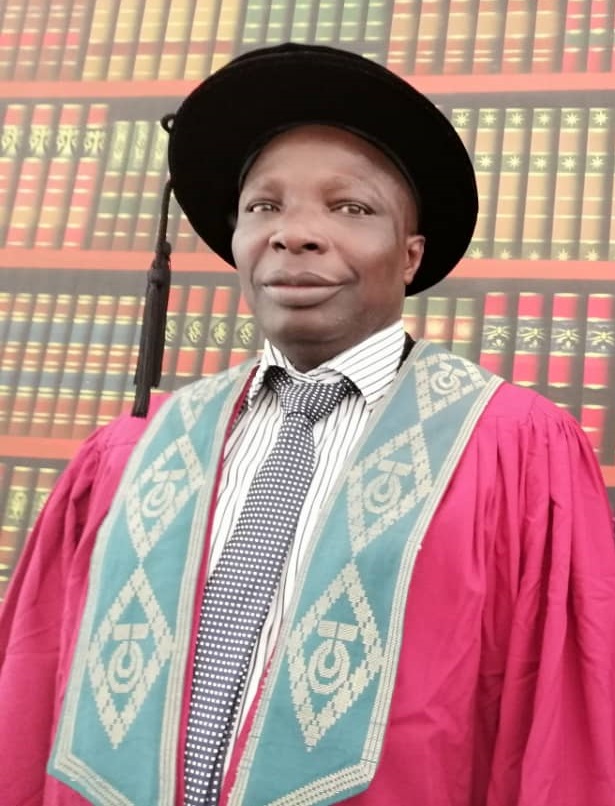 The
College runs the Education degree programme of the University of Nigeria, Nsukka, on
Sandwich and Regular basis. The programmes attract students not only from Ekiti and
Ondo, but also from other States of the Federation,
especially States of the South West and Middle belt. The Federal Government's
directive on the stoppage of the NCE
Sandwich Programme also affects the Sandwich Degree Programme. The College has since
stopped admission of students into the Sandwich Degree Programme but still runs the
regular degree programme.
The
College runs the Education degree programme of the University of Nigeria, Nsukka, on
Sandwich and Regular basis. The programmes attract students not only from Ekiti and
Ondo, but also from other States of the Federation,
especially States of the South West and Middle belt. The Federal Government's
directive on the stoppage of the NCE
Sandwich Programme also affects the Sandwich Degree Programme. The College has since
stopped admission of students into the Sandwich Degree Programme but still runs the
regular degree programme.
DEPARTMENTS
- Agric Education
- Biology Education
- Business Education
- Mathematic Education
- Political Science
- Chemistry
- Integrated Science
- Social Studies
- Economics
- Physics
- Religious Studies
- Accounting
- Geography
- Guidance & Counseling
- Health Education
- Industrial Tech
- Physical and Recreation Education
- Home Economics Education
BRIEF HISTORY OF OBAFEMI AWOLOWO UNIVERSITY, ILE-IFE SANDWICH DEGREE PROGRAMME IN AFFILIATION WITH THE COLLEGE OF EDUCATION, IKERE-EKITI.
The OAU sandwich degree programme of the College started in 2012 with eighteen (18)
courses. Admission was sought for each of the courses with a total number of one hundred
and twenty two (122) students on roll.
The first contact lectures commenced and ran
through 2012 April (Easter)and August vacations. Examination was slated for December
Christmas vacation before NUC clamped down on the running of outreach/satellite centers
of any University. Since then, the programme had found it illegal to bring in the
students on enrollment for any contact session.Hence, a break in the academic
programme.
On 12th September 2014, the senate of Obafemi Awolowo University Ile-ife
(OAU) approved eighteen (18) courses in affiliation with the University on a full time
and sandwich degree programme of the College.
The approval was with immediate effect.
The programme is on-going with the enrollment of students.
LIST OF DEPARTMENTS
- Biology department
- Chemistry department
- Christian religious studies department
- Economics department
- Fine arts department
- Geography department
- Guidance and counselling department
- History department
- English department
- Physics department
- Language Arts department
- Social studies department
- Physical and Health education department
- Mathematics/ISC department
- Mathematics department
- Yoruba department
- Music department
- Political science department
Conclusively, the school is housed in two building of 6 rooms, 1 store and 3 classrooms.
BRIEF HISTORY OF POSTGRADUATE DIPLOMA IN EDUCATION (PDE)
Consequent upon a letter reference TRCN/PO/PDE/56/111 of August 21, 2010 written by the
Teachers Registration Council of Nigeria (TRCN), Abuja on the need to protect the
sanctity of the Professional Diploma in Education (PDE) as a postgraduate programme, the
Academic Board at its meeting of Thursday, April 7,2011approved the mounting of the
Professional Diploma in Education (PDE) in the College with effect from 2011/2012
academic session. The Academic Board also approved the establishment of Postgraduate
School and the immediate commencement of the programme.
Consequent upon this, the
Provost appointed a Dean to head the new school. On June 24, 2011, Management wrote to
the Registrar and Chief Executive,Teachers Registration Council of Nigeria to notify him
of the decision of the Academic Board to mount the Professional Diploma in Education
(PDE) in the College with effect from 2011/2012 academic session.
On August 9, 2011,
the Teachers Registration Council of Nigeria (TRCN) through another memo reference
TRCN/PO/PDE/56/111 gave a provisional approval to the College to commence the
Professional Diploma in Education Programme. Also the same memo conveyed the information
that, the college should invite the Council to assess the adequacy of the facilities
which the College will use in running the programme. These include the following.
- Staff Qualification
- Classroom space
- Entry Qualification
- Library
- General Learning Environment
- Time Coverage
- Any other relevant issues.
The Academic Board at another of its meeting considered and approved the adoption of the
title Postgraduate Diploma in Education (PGDE) which they agreed is more conventional
and acceptable in academic world.
In accordance with the Teachers Registration
Council’s directive, the Registrar through a memo, ref. CEI/RO/1.33.VOI.I/32 requested
for a resource visitation by the Teachers Registration Council of Nigeria (TRCN)
officially, the council considered the request and approved of the visit to the College
on August 10, 2012.
Presently, the Postgraduate Diploma in Education (PGDE) programme
has thirty six (36) students and they have started their teaching practice exercise on
Monday,26th September, 2016 for a period of twelve(12) weeks, while the sales of
admission forms for 2016/2017 session is on-going.
THE PHILOSOPHY OF THE PROGRAMME
The philosophy of the PGDE programme is to produce educators, who will serve as agents of positive change through the social engineering processes of education as teachers, researchers, experts, educational policy/programme designers, implementers, developers, evaluators and experts whose services shall be useful in related fields of national and international development.
THE VISION
To run a PGDE programme that shall cater adequately for the nations education needs as well as become reckoned with as one of the best programme globally.
THE MISSION
To empower educators intellectually and professionally to sustain and improve educational practice in schools, colleges, polytechnics, universities and other educational organizations in Nigeria in line with national needs, aspirations and global standards.
AIMS AND OBJECTIVES OF THE PROGRAMME
The PGDE programme is theoretical; and practical. It includes important aspects of
teaching and learning. The programme addresses the philosophical problems of the bases
of educational practice, the diverse human settings within which teaching and learning
occur, the practical process and content of teaching, the definition of teacher’s role
and teaching ethics.
At the end of the programme, learners should have in-depth
knowledge of education and the professional requirements as well as competence to
adequately teach at various levels of education and function effectively in other
organizations. All courses offered in the programme aim at:
- Developing professional background and expertise of educators;
- Producing educators who are knowledgeable and committed;
- Producing educators who can propel social change intellectually in attitudes, skills, values and worldviews;
- Developing educators who can give Nigeria education a national outlook while making it relevant in a global context;
- Producing educators who are committed to reforming educational delivery through effective application and utilization of ICT in both national and global context;
- Producing educators who would teach and provide leadership at different levels of education;
- Providing leadership for basic, secondary and tertiary academic institutions and other sectors of the national economy;
- Producing media specialists, designers of training programme and evaluators of educational programme/products in the schools, Ministry of Education, industries, health services and government agencies;
- Providing opportunity of the professional training and personal improvement in teaching for serving teachers.
- Enabling the acquisition of knowledge, skills and techniques necessary for teaching the special subjects and the effective use of the library; and
- Conforming to all regulations contained in the National Benchmark for the PGDE programme in Nigeria.
ACHIEVEMENTS
Since the inception of the programme, the School has graduated three (3) sets of students. The result of the third set is still being processed while the fourth set is presently on teaching practice exercise.

